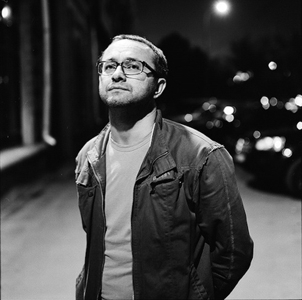"Elena" blends a narrative sense reminiscent of 19th century writers...
05/26/2012
Andrei Zvyagintsev Elena blends a narrative sense reminiscent of 19th century writers like Balzac or Falubert with contemporary tropes. The result is a minimalist post-modern Noir.
Even without Phillip Glass's signature angst-provoking score, Zvyagintsev builds tension from the first frame (a Tarkovsky-style nature shot of dead branches).
Mikhail Krichman's beautifully composed long shots of the couple's morning rituals hypnotize. The closing sequence, with Elena's family ensconced in Valdimir's apartment (shot through branches like the opening scene) feels like a Chekov play turned inside out.
Through minimalist dialogue Zvyagintsev (Venice's Golden Lion winner The Return, The Banishment) paints a portrait of Russia's post-Soviet, corrupt new world. Alas, it's as greed driven and amoral as the rest of the free-market globalized world.
Zvyagintsev's adept at character building from tiny gestures. By the end of this oblique drama, we know his troubling characters too well.
Elena (Nadezhda Markina) wakes in the spacious elegant apartment she shares with her distant, selfish husband Vladimir (Andrey Smirnov).
Privileged Valdimir carved out his wealth during the lawless days of perestroika, and his single minded obsession lost him his daughter's affection. The ex-militry man turned industrialist spends his day at the gym, while Elena sees to the domestic chores.
Waking in his darkened luxurious bedroom, cruising from gated garage to luxe gymnasium, he's sheltered form all the ugliness of the rootless society around him.
Elena is so submissive, in an earlier age she might even be Valdimir's sexually available housekeeper. In fact. Elena nursed widower Vladimir back from a serious illness then married him.
Married ten years, they each struggle with their children from previous marriages. Despite living in two different classes, both grown children depend on their parents money. Elena and Vladimir each criticize the other's relationship with their offspring but can't resist the dysfunctional bond of their own symbiotic relationships.
Vladimiris estranged from his spoiled daughter Katya (Yelena Lyadova), who rubs her party-girl lifestyle in her disciplined father's face.
Elena regularly travels by bus and train to the suburban flat (built close to a nuclear reactor) of her chronically unemployed son Sergey (Aleksey Rozin). Scenes in their flat are almost "Kitchen-sink" dreadful, as Sergei's wife struggles to get her husband to behave. He'd rather down beers and play video games with his equally shiftless son, whose lackluster grades won't make the college cut. Worse, he and his punk friends brutally attack sleepless, homeless men.
Elena dandles her youngest grandchild on her knee and tries to communicate with her sullen grandson. Despite her promises toVladimirshe ritually siphons off her housekeeping money to help her son's family.
Desperate to help their son escape the draft, they beg Elena for a wad of cash to bribe the University officials.
Aware that Vladimir will probably refuse her request, Elena promises to ask him for the money. Valdimir believes Sergei to care for his own children (and perhaps he is right) but Elena can't bear to face the result.
Vladimirsuffers a heart attack. Elena arranges a bed side reconciliation with Katerina (It's a briliant scene). Equally brilliant are the scenes between step mother and step daughter. Their loathing is palpable.
The cast is uniformly strong, registering deep family rifts with minimal beahvior. Nadezhda Markina, who has the difficult task of showing the complex and contradictory ties of love and loyalty, is masterful.
Facing death, Vladimir is moved to finally address his will. Before he can complete his will, Elena takes matters into her own hand.
Robin Menken
CinemaWithoutBorders.com
